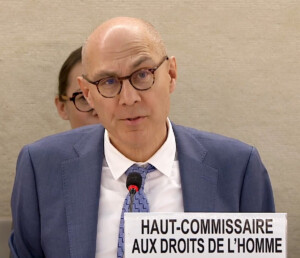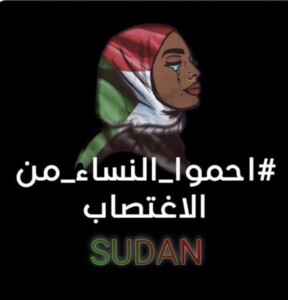Sudan’s Fiqh Academy prohibits ratification of CEDAW
The Sudanese Fiqh Academy issued a fatwa on Sunday, barring the planned ratification of the UN Convention on the Elimination of Discrimination against Women (CEDAW). The No to Oppression of Women Initiative calls for the dissolution of the Academy.
 Sudanese women demanding the ratification of CEDAW Khartoum, January 2, 2020 (EPA / Morwan Ali)
Sudanese women demanding the ratification of CEDAW Khartoum, January 2, 2020 (EPA / Morwan Ali)
The Sudanese Fiqh Academy issued a fatwa on Sunday, barring the planned ratification of the UN Convention on the Elimination of Discrimination against Women (CEDAW). The No to Oppression of Women Initiative calls for the dissolution of the Academy.
In end April, the Council of Ministers endorsed the ratification of CEDAW and the Maputo Protocol on the Rights of Women in Africa. The Council noted reservations to some articles of CEDAW (Article 2, 16, and 29/1) without giving further details. The text is to be formally ratified in a joint meeting of the Sovereignty Council and the Council of Ministers.
The Sudanese Women's Union lauded the step at the time, saying it rejects any reservation on the contents of the convention. According to the Union, “the three articles form the spirit of the convention. They clarify the rights of women. Without them, the agreement becomes a dead letter”.
Sudan is one of the very few countries that did not ratify the international treaty for women rights adopted by the UN in 1979. CEDAW has been ratified by 187 countries, though most of the Arab and Islamic states have expressed reservations based on provisions of the Islamic law (Sharia).
The Fiqh (Muslim jurisprudence) Academy falls under the Ministry of Religious Affairs and Endowments. Its fatwa (ruling) on CEDAW states that the international convention can only be approved following the removal of articles “that lead to the abolition of Muslim family and inheritance laws, in addition to “the acknowledgement of good [Muslim] customs observed throughout history [which] are not to be violated in any way”.
‘IS ideology’
In response to the fatwa, Amira Osman, chair of the No to Oppression of Women Initiative, called on the government “to expedite the dissolution of the Academy and transfer its budget to the Ministry of Health”.
She told Radio Dabanga that she does not understand the reason for keeping the Fiqh Academy after the revolution. “The role of the Academy ended with the fall of the deposed regime that established it in order to have religious support for its policies,” she explained. “And we utterly reject the spread of IS ideology in our country.”
She further pointed to the many Islamic countries that ratified CEDAW, including Saudi Arabia.
Since the 1980s, Sudanese women groups have called for the ratification of the CEDAW, forming “a legislative umbrella for the protection of women and allow them to effectively participate in public affairs”.
Islamist women in Sudan rejected CEDAW and gender equality in the past, while promoting political and economical empowerment for women.
UN conventions
Human Rights Watch stated in a letter to the UN Human Rights Council on September 2020 that Sudan’s “Transitional Government announced a ‘full cooperation’ policy towards the United Nations, which includes cooperation with the Council and its mechanisms, as well as ratifications, namely of the Convention on the Elimination of All Forms of Discrimination Against Women (CEDAW) and the Convention against Torture and Other Cruel, Inhuman or Degrading Treatment or Punishment (CAT)”.
The organisation urged Sudan to review its legislation “to bring it fully in line with international human rights standards and the Constitutional Document”.
In February, the Sovereignty Council and Council of Ministers approved two draft laws to join the 1984 CAT, and the 2006 International Convention for the Protection of All Persons from Enforced Disappearance (ICPPED).









 and then
and then